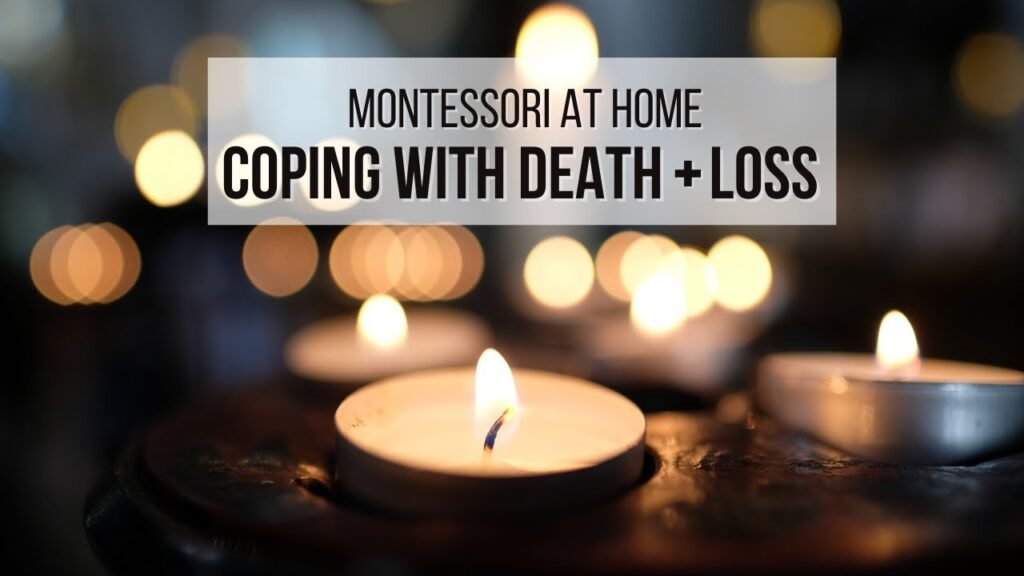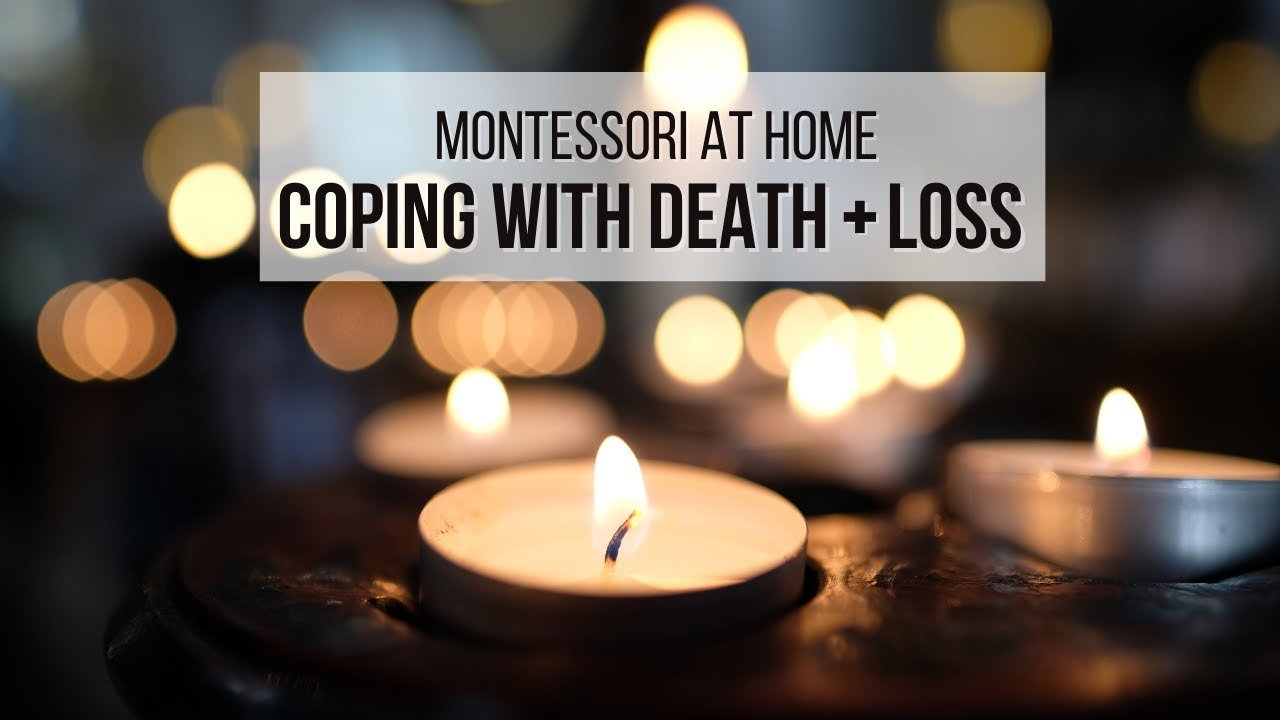When you hear the term “Parenting Through Loss: A Montessori Perspective,” you may wonder how to approach such a heavy topic with your children. In this video by Hapa Family, you will find insight into coping with death and loss using a Montessori approach. Ashley, a mom of two little girls, shares her personal experiences of unexpected death, missed miscarriage, and the loss of a family pet, all while focusing on respectful parenting and honest communication with her children.
As Ashley discusses how she handled these tough situations with her children, she emphasizes the importance of being honest and providing developmentally appropriate information. Through the Montessori approach, she and her husband have embraced their children’s emotions and allowed them to express themselves freely. This video offers a unique perspective on navigating difficult conversations with children and highlights the significance of open communication and respect in parenting.
Understanding Loss and Grief
Loss and grief are emotions that everyone will experience at some point in their lives. Loss refers to the absence of something we once had or hoped for, whether it be a loved one, a dream, a pet, or a pregnancy. Grief, on the other hand, is the deep sorrow and emotional response to that loss. It is essential to recognize and understand these feelings to navigate through the grieving process effectively.
Montessori Principles on Parenting Through Loss
Respect for the Child’s Emotions
Montessori principles emphasize the importance of respecting children’s emotions and providing a safe space for them to express themselves. When children experience loss, they need to feel heard and understood, even if they may not fully grasp the concept of death. Acknowledging their feelings and validating their emotions is crucial in helping them cope.
Encouraging Independence in Coping
Montessori parenting focuses on fostering independence in children, even during challenging times like grief. Encouraging children to take an active role in their coping mechanisms, such as engaging in meaningful activities or expressing themselves through art or play, can empower them to process their emotions in a healthy way.
Creating a Supportive Environment
Establishing a Safe Space for Expression
Creating a supportive environment involves establishing a safe space where children feel comfortable sharing their thoughts and emotions. This space should be free of judgment, allowing children to express themselves openly without fear of retribution. Encourage open communication and active listening to strengthen the parent-child bond.
Offering Consistent Routines and Boundaries
Consistent routines provide children with stability and predictability during times of grief. Maintaining regular mealtimes, bedtime rituals, and daily activities can offer a sense of normalcy and security. Setting clear boundaries and expectations helps children feel safe and helps them navigate their emotions within a structured environment.

Age-Appropriate Discussions
How to Approach Different Age Groups
When discussing loss with children, it is essential to consider their age and level of understanding. Younger children may struggle to comprehend abstract concepts like death, while older children may have a more profound understanding. Tailor your conversations to meet each child’s developmental stage, using age-appropriate language and examples to help them grasp the concept of loss.
Using Simple Language and Concrete Examples
Using simple language and concrete examples can help children make sense of complex emotions like grief. Avoid using euphemisms or vague terms when discussing loss, as this can lead to confusion or misunderstandings. Be honest and straightforward in your explanations, providing clear and concise information that children can relate to their own experiences.
Practical Ways to Help Children Cope
Engaging in Meaningful Activities
Engaging children in meaningful activities can provide a healthy outlet for processing their emotions. Encourage them to express themselves through art, music, or play, allowing them to explore their feelings in a creative and constructive way. Physical activities like yoga, dance, or sports can also help children release pent-up emotions and improve their overall well-being.
Encouraging Connections with Nature and Pets
Nature and pets can offer comfort and companionship during times of grief. Spending time outdoors, gardening, or caring for a pet can help children feel connected to the world around them and provide a sense of routine and responsibility. Encourage children to explore nature, engage with animals, and find solace in the beauty and simplicity of the natural world.
Modeling Healthy Coping Mechanisms
Showing Vulnerability and Honesty
Modeling healthy coping mechanisms involves showing vulnerability and honesty in front of your children. Demonstrating that it is okay to express sadness, anger, or confusion can help children feel more comfortable sharing their own emotions. Be honest about your feelings and experiences, showing that it is normal to grieve and that it is okay to seek support from others.
Practicing Self-Care as a Parent
Practicing self-care as a parent is essential in managing your own emotions and well-being during times of loss. Taking time for yourself, seeking support from loved ones, and engaging in activities that bring you joy can help you navigate the grieving process effectively. Prioritize your mental and emotional health to be better equipped to provide support to your children.
Recommended Resources for Parents
Books on Grief and Loss for Children
Books on grief and loss can be valuable resources for parents seeking guidance on how to discuss these topics with their children. Look for age-appropriate books that address themes of loss, grief, and coping strategies, providing children with insight and comfort during difficult times.
Online Support Groups and Counseling Services
Online support groups and counseling services can offer additional support and guidance for parents navigating grief with their children. Joining a community of individuals who have experienced similar losses can provide comfort, understanding, and practical advice. Professional counseling services can also help families process their emotions and develop healthy coping mechanisms.
Cultivating Resilience in Children
Building Emotional Intelligence
Cultivating resilience in children involves building emotional intelligence and coping skills that will help them navigate through challenging situations. Encourage children to identify and express their feelings, practice active listening, and seek positive outlets for their emotions. Teaching children how to manage stress, anxiety, and grief can empower them to face adversity with strength and resilience.
Fostering a Growth Mindset
Fostering a growth mindset in children involves promoting a positive outlook on life and encouraging a sense of optimism and hope. Help children see challenges as opportunities for growth and learning, emphasizing the importance of perseverance and resilience. Instilling a growth mindset in children can equip them with the tools they need to overcome obstacles and thrive in the face of adversity.
Encouraging Positive Memories and Rituals
Creating Memory Books and Journals
Encouraging children to create memory books and journals can help them preserve positive memories of loved ones and moments shared together. Providing children with a creative outlet for expressing their feelings and honoring special memories can promote healing and comfort during times of grief. Memory books can serve as a tangible reminder of the love and connection that children shared with those who have passed.
Honoring Loved Ones Through Special Celebrations
Honoring loved ones through special celebrations and rituals can help children cope with loss and celebrate the life and legacy of those they have lost. Encourage children to participate in rituals that commemorate the memory of their loved ones, such as planting a tree, lighting a candle, or creating a special artwork. These rituals can create a sense of connection and closure, allowing children to find meaning and healing in the midst of grief.
Conclusion
Reflecting on the importance of honesty and open communication in parenting through loss is crucial in helping children navigate their emotions and develop healthy coping mechanisms. Embracing the Montessori approach as a tool for navigating grief with children can provide a foundation of respect, empathy, and support during challenging times. By incorporating Montessori principles, creating a supportive environment, having age-appropriate discussions, and modeling healthy coping mechanisms, parents can guide their children through the grieving process with compassion and understanding. Remember that each child is unique, and it is essential to tailor your approach to meet their individual needs and abilities. By fostering resilience, encouraging positive memories, and honoring loved ones, families can find healing and strength in the face of loss. Through empathy, honesty, and love, parents can help their children navigate grief with grace and resilience.

